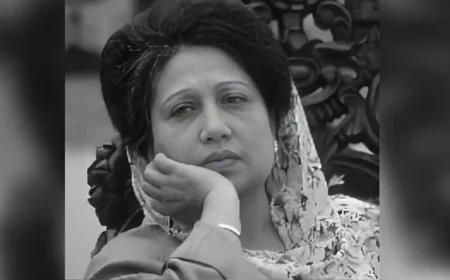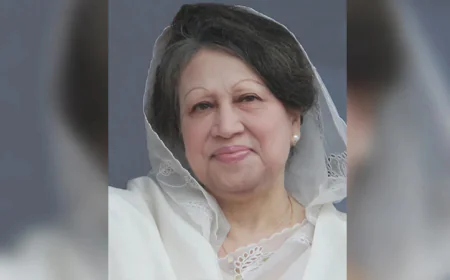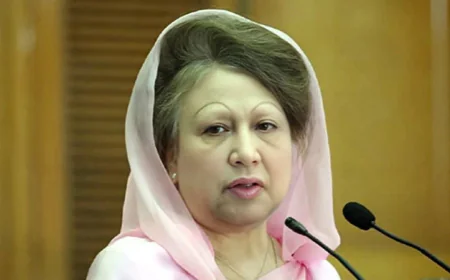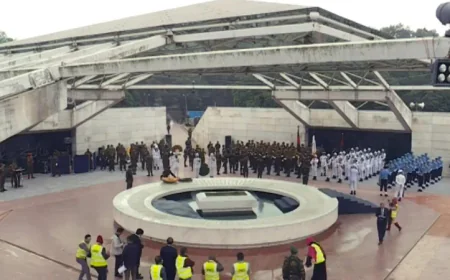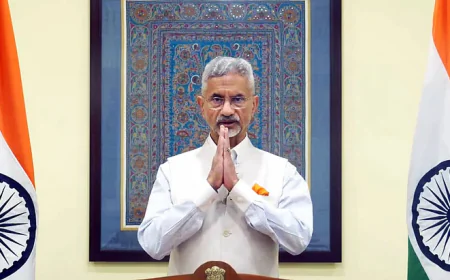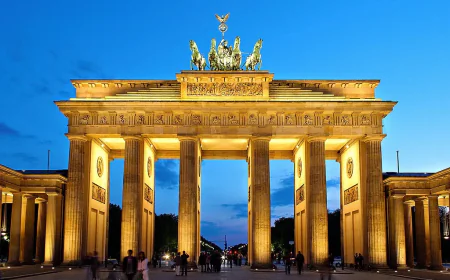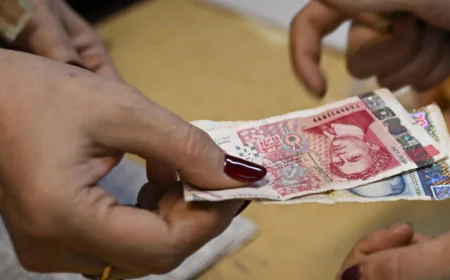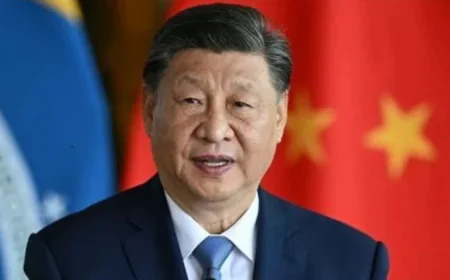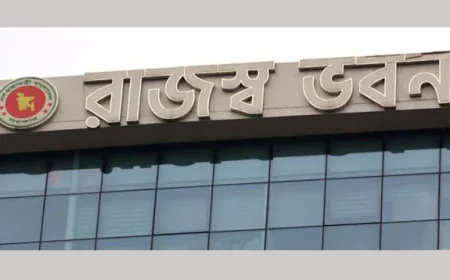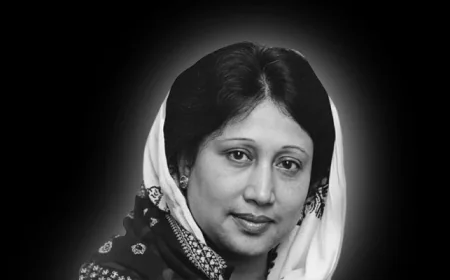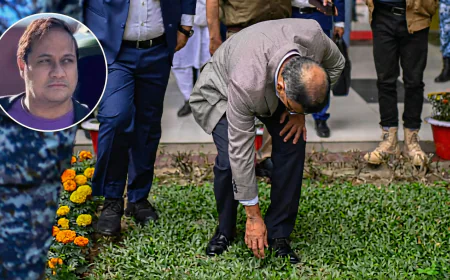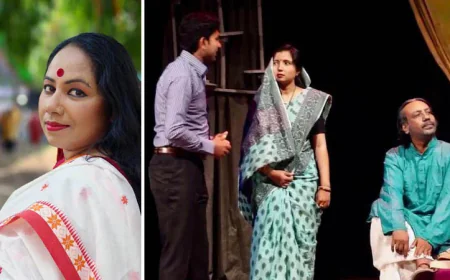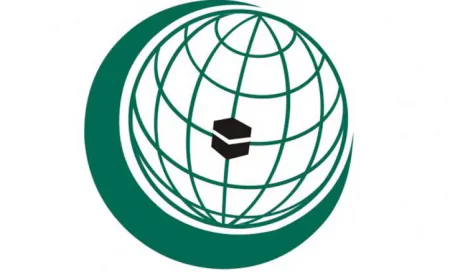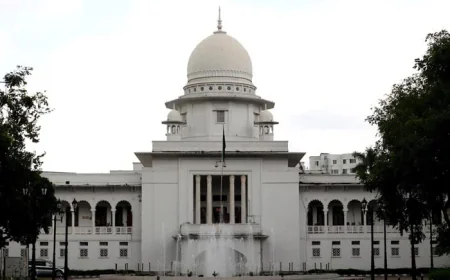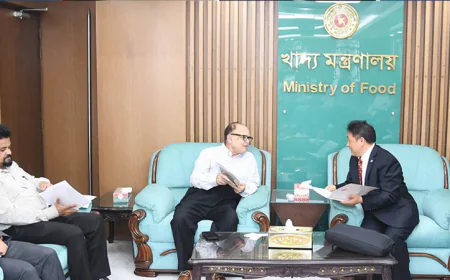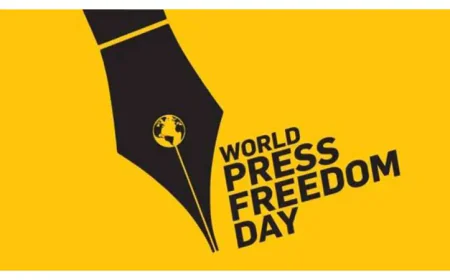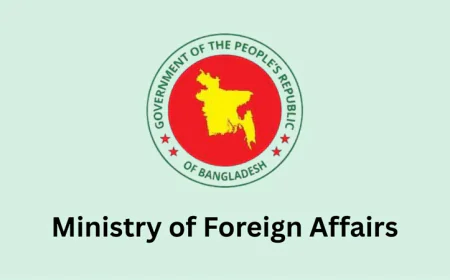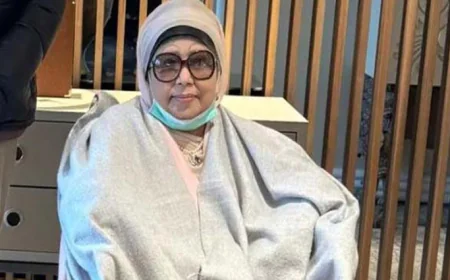Bangla Blockade Called for July 6 by Quota Reform Leaders
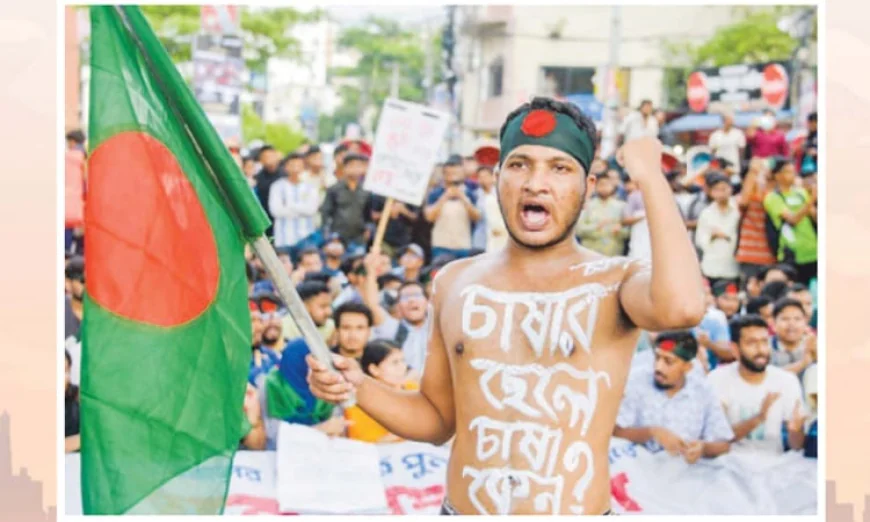
As the government was trying to ignore the students' movement demanding reinstatement of the 2018 government circular that cancelled quota system in government jobs, saying it was a matter of court, the protesters announced new programme identifying as 'Bangla Blockade' on July 6 to realize their demand. "Our programmes until July 6 were protest processions only. The 'Bangla Blockade' was observed on July 7 as the court was prolonging process," Asif Mahmud Shojib Bhuyain, one of the key coordinators of the anti-discrimination student platform, wrote in his book titled 'July: Matribhumi Othoba Mrityu'. The hearing on the High Court order slated for July 4 was postponed and the movement and the students' opinions were being ignored and looked down upon, said Asif, now an advisor of the interim government. Students felt their opinions were being disregarded. While they were staging demonstrations blocking the Shahbagh intersection, many vehicles were simply bypassing them, which dampened the intended impact of the protest. "(As by that time) students from other educational institutions in Dhaka had already joined the movement . . . the 'Bangla Blockade' programme was announced with the idea of holding a movement on a larger scale," Asif recalled.
On the same day, students from different universities across the country declared a boycott of classes and examinations expressing solidarity with the movement. Before declaring the 'Bangla Blockade', the protesters blocked Shahbagh intersection for about an hour. Later, around 5:30 pm, they moved away from the location, allowing traffic flow through Shahbagh. While announcing the 'Bangla Blockade' programme, Nahid Islam, also a key-coordinator of the Anti-Discrimination Student Movement said, "We are going to start the 'Bangla Blockade' programme from 3pm tomorrow". "Students from different universities and colleges will simultaneously occupy Shahbagh, Science Lab, Chankharpul, Nilkhet, Motijheel and every key point in Dhaka to make the programme a success while students outside Dhaka will block highways in their respective districts and universities," Nahid, also former advisor of the interim government, added. He further said, "The government assumes we'll get tired and go home after two or three days of protests. We must prove their assumption wrong. We have been peaceful so far, but if needed, we will call for a general strike."
"In 2018, the deposed prime minister assured us there would be no quotas. So why have they returned? We demand an answer. The quota system must be eliminated not just in first and second class jobs, but in third and fourth class as well," said Nahid, now National Citizen Party (NCP) chief. That day, students under the banner of the Anti-Discrimination Student Movement began a protest procession from in front of the Dhaka University Central Library around 3.15pm. The procession paraded through DU's Shadow and Mall Chattar, Surja Sen and Haji Muhammad Mohsin Halls, the Smriti Chironton Chattar, TSC, Bakshi Bazar, BUET campus, Palashi and Azimpur and ended at the Shahbagh intersection. Before the procession reached Shahbagh, another group of protesters had already gathered in front of the National Museum. As soon as the main procession reached the Faculty of Fine Arts, students in front of the museum blocked Shahbagh intersection around 4.37pm. They chanted slogans and maintained the blockade for 50 minutes.
On the same day, students and job seekers from all public universities across the country organized protest marches and rallies under the anti-discrimination student movement banner. In addition to these demonstrations, students blocked roads and highways in Dhaka, Tangail, Rajshahi, Rangpur, Kushtia and Chattogram. On July 6, 2024, Mosharraf, the general secretary of the Dhaka University Sociology Debating Club and a student of 2019-20 session, was relieved of his position due to his involvement in the quota reform protests and for writing about the movement on his Facebook account. That day, Jagannath University students blockaded the Tantibazar intersection in the capital. After two hours, at around 5 pm, they ended the blockade and returned to campus with a procession. At Jahangirnagar University, under the banner of the Anti-Discrimination Student Movement, a protest march began at 3.30pm, with demonstrators visiting various halls to spread their message. They announced a blockade of the Dhaka-Aricha highway from 3pm to 6pm.
Despite the occasion of Rajshahi University's founding anniversary on that day, students there continued their protest and sit-in demanding quota reform. At 11am, a procession began from Paris Road and blocked the Dhaka-Rajshahi highway in front of the university's main gate, continuing until noon. At Mawlana Bhashani Science and Technology University, students blocked the Dhaka-Tangail highway for two hours starting from 10am to press home their demand for the quota reforms in the government jobs. At 12 noon, students from Islamic University blocked the Kushtia-Khulna highway near the university's main entrance. Despite a heavy downpour during the protest, students continued their blockade. Prior to that, at around 11.30am, students had begun a march from the Bot Tala area near the faculty buildings. In Chattogram, students from various institutions blocked roads for the second consecutive day. Around 5pm, Chittagong University students arrived at Sholoshahar Station by the shuttle train and joined a large number of students from other educational institutions. At Begum Rokeya University, students blocked the Rangpur-Dhaka highway at Modern Mor around 12pm. After an hour and a half, they lifted the blockade around 1.45 pm, announcing that they would boycott classes and exams until their demands were met.
